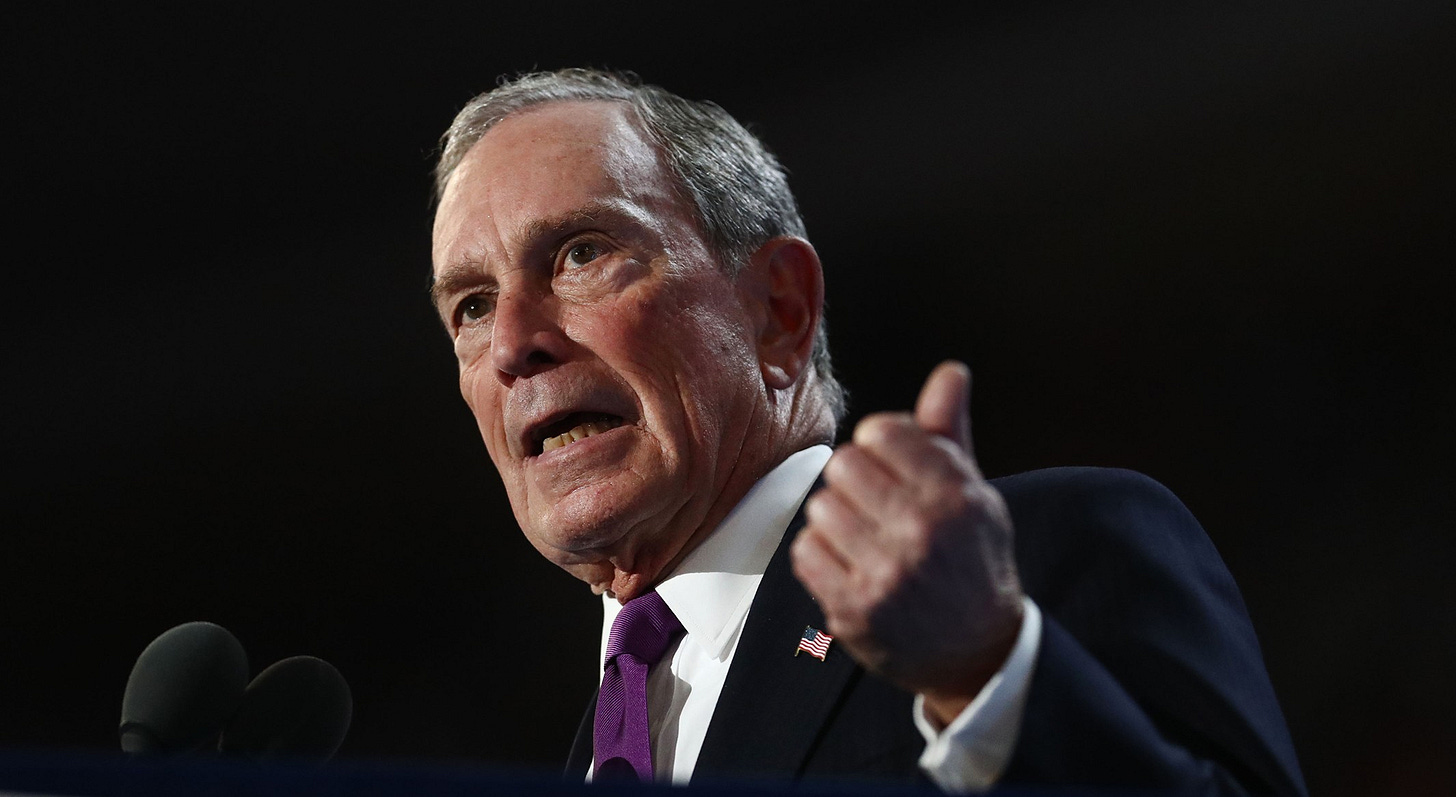
Are you signed up for this newsletter? If not, sign up now!
In some ways, tonight’s Democratic debate feels more momentous than any political debate in my lifetime—the brazen Bloomberg billions strategy of buying your way into the Presidency faces its first real test, and the stakes are far higher than the outcome of any particular candidacy or nomination process.
Why do I think this? Bloomberg’s lack of deep party ties—he was a Republican for most of his Mayorship—coupled with a history of policy stances and statements most Democratic voters find abhorrent mean that the sole, overriding force of his candidacy has been his enormous warchest.
The super rich have bought increasingly more influence in American politics, with the rise of deeply pocketed SuperPACs and a Presidency willing to auction off policies to the highest bidder, but they have also experienced some vigorous resistance: no amount of spending could salvage the Presidential candidacy of Jeb!, and no amount of wine cave fundraisers could overpower the small donor machines of Bernie Sanders and Elizabeth Warren.
Tom Steyer’s money got him on the debate stage, but so far it has been unable to turn him into a top tier candidate. (Sorry, Tom—you’re a nice guy, it just hasn’t worked out yet for ya.) So far Bloomberg’s much bigger pile of money has gotten him onto the debate stage with a much bigger polling headwind at his back—but can it shield him from democracy’s immune response?
Bloomberg’s rivals have telegraphed a willingness to directly go after him in a way they really haven’t towards each other, so I expect him to face a kitchen sink of attacks from both the moderate and progressive factions on stage. If these attacks can smother his candidacy in the crib, it should send a powerful message to America’s oligarch class: America cannot be bought, no matter the price.
If, however, Bloomberg emerges unscathed, or even merely modestly wounded, then he’ll have successfully opened the floodgates for all of America’s billionaires to throw their hat in the ring. Why, after all, fund unreliable politicians and inconsistent political groups to advance your cause when you can just throw your hat in the ring and do it yourself? Even if you are favorable to Bloomberg’s cause, I urge you to consider this: the vast, vast, vast majority of America’s super rich are deeply right wing. Folks like Bloomberg and Gates stand out so much specifically because they are at least nominally Democrats—and if Bloomberg can prove that the billionaire candidate model is viable, and can blow past even a sustained assault by a coalition of leading political figures on a national stage, then we may very well have opened ourselves to a future of endless billionaire candidacies.
Imagine a future where only the super rich can run because they drop so much money into the race that no traditional campaign can afford to compete for staff or media; imagine a future where the debate stage where it’s not weird that there’s a billionaire on stage, but that it’s weird for non-billionare to be on stage.



